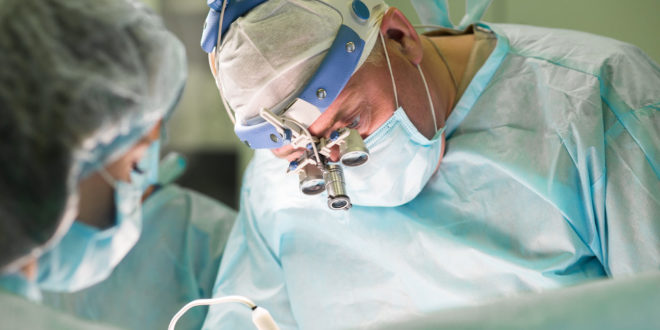An Advocate for Organ Donation
DeWayne and Bev Boyer of Silver Spring, Maryland, had to make such a decision when the younger of their two daughters, 17-year-old Erin, suddenly died. A brain aneurism took her life in 1998. Among the whirlwind of decisions to be made was whether or not to add Erin’s healthy organs to a donor list.
Although they had never discussed it with Erin, the Boyers decided it was what she would have wanted. After returning home and locating Erin’s driver’s license, they received confirmation that they had fulfilled Erin’s wishes. “That’s a really good feeling for a parent who’s lost a child,” says Bev, a pre-first-grade teacher at nearby Spencerville Adventist Academy.* Weeks later, they learned that Erin had been advocating organ donation to her classmates before her death.
According to her parents, Erin was popular and a natural leader. “She was a striking young lady,” says DeWayne, an ordained minister and—for the past 13 years—the Bible instructor at Takoma Academy in Takoma Park, Maryland. “She was considered the star of the school—from her academics to sports, to her looks—everyone wanted to be like her. Her death had a gigantic effect on young people.”
One Death Brings Life
Erin’s death continues to have a positive effect on others. Because of her decision, many of her major organs were transplanted to very appreciative people waiting to be well again. “In Erin’s case, there were five initial successes,” reports DeWayne.
Erin’s heart went to Gina, a teenager who had never had an active childhood. Her left lung was successfully transplanted to Karen, a Virginia woman in her 50s. Erin’s left kidney and pancreas were donated to Natasha, a D.C. woman in her 30s, who was at end-stage renal failure due to Type 1 diabetes. Erin’s right kidney went to a man in Ohio. Although his body ultimately rejected the kidney, he received another donation and is doing fine. Erin’s liver went to a D.C. Army sergeant. The transplant was initially successful, but he subsequently died.
“The Boyers have met several of the recipients and continue to have relationships with some of them. “It means so much to know that cells from Erin’s body are alive today and giving life,” says DeWayne.
When Karen met the Boyers, she told them, “I wanted to meet you, but this has been so hard for me. I knew that someone had to die for me to live.”
“It was difficult for her,” says Bev. The Boyers communicate regularly with Karen.
They also have a wonderful relationship with Natasha and even attended her college graduation, something she didn’t think was possible before she received Erin’s kidney and pancreas. However, some of the experiences have been bittersweet. Gina has chosen to discontinue communicating with the Boyers, according to DeWayne.
Healing Through Advocacy
These days DeWayne is heavily involved in the Organ Procurement Organization’s Washington Regional Transport Consortium (WRTC), which serves the metropolitan Washington, D.C., area. Organizations like the WRTC are responsible for bringing together donors, donor families, surgical and transplant teams, and patients on the waiting list.
Their long-term advocacy efforts gratify the Boyers. “I have a spiritual sense about it. This is something that God would want us to do,” says Bev, who has done several speaking engagements. Once she spoke to doctors, nurses, and organ recipients at Inova, Fairfax Hospital’s transplant center in Virginia, where Erin’s organs were donated.
“It was just amazing,” she says. “A few of them were the very doctors who did the transplants.” Some of the recipients approached her afterward. They wanted to “adopt” the Boyers as a donor family because their original donor family did not want to communicate.
DeWayne’s most rewarding, high profile advocacy effort involved being a relay runner and carrying the 2002 Olympic torch. In December of that year, he ran with a uniquely crafted torch for a fifth of a mile through Maryland’s Bethesda/Chevy Chase areas. Coca-Cola sponsored his one-of-a-kind torch and outfit, which he gladly displays at certain speaking events. DeWayne specifically created the T-shirt’s slogan and design—“Life is a Gift, Pass it On”—to reflect his advocacy efforts. About 100 people, including Karen, Natasha, and their families, wore the T-shirts while attending his run.
Myth vs. Fact
As the Boyers have discovered, very few people consent to make organ donations. Many of their reasons are based on myths. Some people falsely believe that doctors won’t work as hard to save them if they choose to be donors if they are in an accident. The truth is that physicians involved in emergency patient care, by law, may not have anything to do with transplant programs.
Because of these misconceptions, about half of those on nationwide waiting lists die. “That’s true for all major organs,” says DeWayne. “If a recipient is too well, they can’t get on the list, and if they’re too sick, they’re taken off the list.”
If you liked this, you might also like Kidney Alert | Giving the Gift of Life: The Importance of Organ Donation
* The Seventh-day Adventist Church strongly encourages organ donation, and many Adventist hospitals perform transplants. “It gives us the chance to give to other people and to encourage others to share in the gift of life,” says Bev. “I think it represents what God did for us.”
For more “truths” and other information about organ donation, visit Washington Regional Transplant Consortium. To view DeWayne’s public service announcement about organ donation, visit The Discovery Health Channel.
______________________________
Facts about Organ Donation
· Only 1 percent of people who die actually qualify to be organ donors.
· Of that 1 percent, only half choose to be donors.
· If everyone agreed to be an organ donor, the supply would match the demand.
· The major organs used for donation are the heart, lungs, kidneys, liver, pancreas, and small intestine.
· As of September 1, 2005, over 88,000 people were on the waiting list to receive organs.
· Nearly 63,000 people are waiting for kidney transplants, the most difficult—and expensive—organ to transplant.
© 2002 - 2024, AnswersForMe.org. All rights reserved. Click here for content usage information. Answers for Me Support & encouragement for every-day life
Answers for Me Support & encouragement for every-day life



